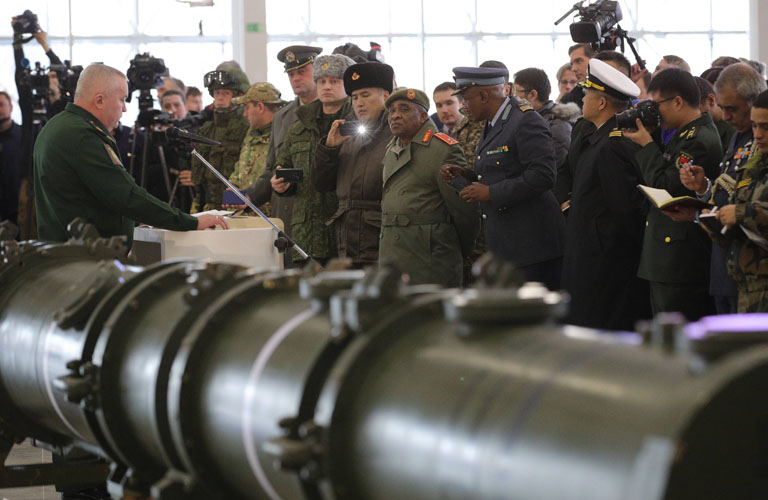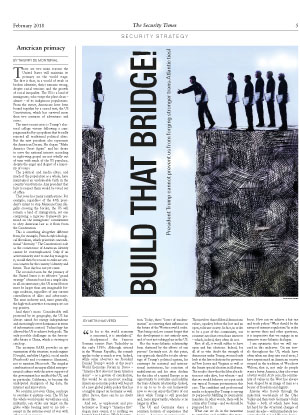American primacy
There are two main reasons the United States will maintain its primacy on the world stage. The first is that, in a world of weak or broken identities, theirs remains strong, despite racial tensions and the growth of social inequality. The US is a land of immigrants, who swept the plate clean – almost – of its indigenous populations. From the outset, Americans have been bound together by a sacred text, the US Constitution, which has survived more than two centuries of adventures and crises.
The most recent crisis is Trump’s electoral college victory following a campaign marked by a populism that broadly rejected all traditional political elites. But the new president also represents the American Dream. His slogan “Make America Great Again” and his desire to serve the national interest according to right-wing gospel are not wholly out of tune with much of the US populace, despite the anger and disgust of a majority of voters.
The political and media elites, and much of the population as a whole, have maintained an unshakeable faith in the country’s institutions. Any president that fails to respect them would be voted out of office. That issue has many ramifications. For example, regardless of the 45th president’s intent to stop Mexicans from illegally crossing the border, the US will remain a land of immigration, yet one comprising a rigorous framework premised on the immigrants’ commitment to obey American law as it flows from the Constitution.
This is something altogether different from, for example, French-style ideological liberalism, which prioritizes unconditional “diversity.” The Constitution’s role as the cornerstone of American identity cannot be overemphasized. Only if an active minority were to one day transgress it, would there be reason to embrace serious concern for the country’s identity and future. That day has not yet come.
The second reason for the primacy of the United States is its effective “grand strategy” of means based on a simple idea: in all circumstances, the US armed forces must be larger than any imaginable foreign coalition, regardless of any current constellation of allies and adversaries. The arms industry and, more generally, the high-tech activities it encompasses are top priority.
And there’s more. Considerably well protected by its geography, the US has always aimed for energy independence and increasingly overt dominance in terms of information control. Technology has allowed the US to achieve both goals. The only possible challenger in the foreseeable future is China, which is striving to catch up.
The acronym GAFA provides an apt summation of the situation: search engines (Google), mobility (Apple), social media (Facebook) and e-commerce (Amazon), not to mention Microsoft. The singular combination of an unparalleled entrepreneurial culture with the active support of the government has enabled the US, and in particular California, to become the undisputed champion of big data, the internet and innovation. No country, not even China, can hope to overtake it anytime soon. The US has the whole world under surveillance and, militarily, can strike any target on the globe while bearing next to no risk – except in the extreme event of war with other nuclear powers.
America dominates the digital world, which is still embryonic but growing at a brisk pace. Its dominance in this realm is such that it can afford to make mistakes that the rest of the world cannot. While it is not immune to cyberattacks, unpleasant revelations from Wikileaks, disinformation campaigns (whether or not they can be categorized as post-truth) or other attempts at destabilization, the US is currently better prepared to overcome such setbacks than any other country in the world.
And yet, the United States is in no position to govern the world. Firstly, this would not be compatible with its ideology, and, even if it were, the country has frequently changed course throughout its history. Protecting its territory and national identity; furthering its economic interests from a position of strength; making and unmaking alliances accordingly; reserving the sovereign right to strike abroad without fearing a counterstrike; and fostering the spread of its values to boost its soft power are the implicit, unchanging foundations of its foreign policy. Not only is it less volatile in the long term than it may seem to be in the short or medium term, it also always reflects a unique, pragmatic combination where interests and values dovetail.
THIERRY DE MONTBRIAL




